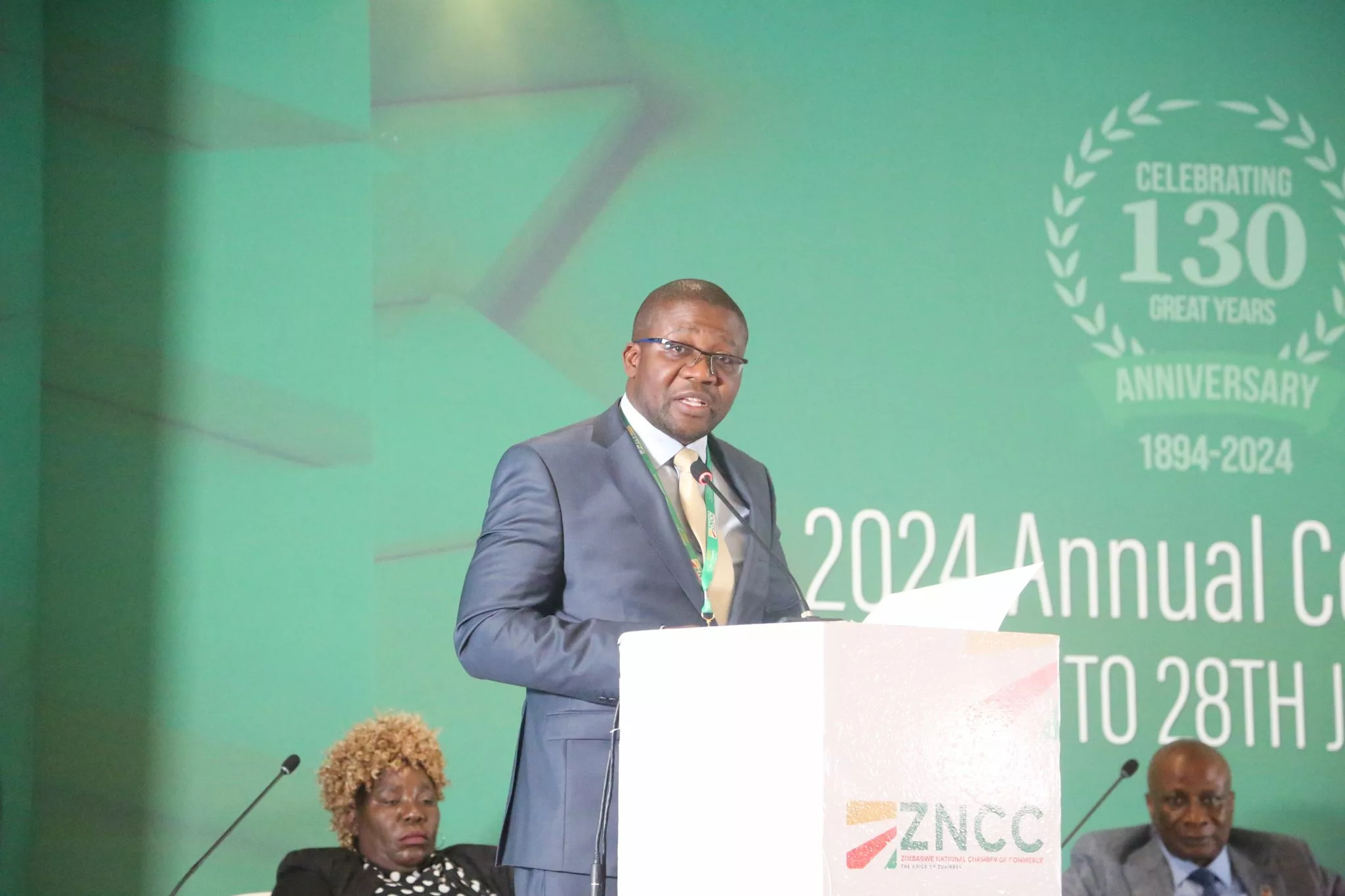|
Getting your Trinity Audio player ready...
|
The 2024 Zimbabwe National Chamber of Commerce (ZNCC) Annual Congress in Victoria Falls is running under the theme, “Unlocking New Frontiers for Sustainable Industrialization and Climate-Smart Business Growth,” setting the stage for a transformative journey towards green growth where the economy thrives while protecting the environment for a resilient future for Zimbabwe.
In his remarks, while officially opening the ZNCC Annual Congress in Victoria Falls yesterday, Hon Mangaliso Ndhlovu, the Minister of Industry and Commerce, urged stakeholders to reflect on achievements, tackle the challenges, and carve out a path that ensures both economic growth and environmental sustainability.
“As we gather here in the magnificent city of Victoria Falls, we are reminded of the immense potential that lies within our borders. Our rich natural resources, industrious people, and strategic location provide us with a solid foundation upon which we can build a fortified and diversified economy.
“To fully realize this potential, we must embrace the principles of sustainable industrialization. We must innovate and adopt practices that not only drive economic growth but also safeguard our environment for future generations. This is not just a moral imperative; it is a strategic necessity in an increasingly eco-conscious global market,” Hon Ndhlovu said.
Addressing the same gathering, His Excellency Mr. Edward Kallon, UN Resident and Humanitarian Coordinator, said in a world where climate change is no longer a distant threat but a current reality, Zimbabwe must embrace sustainable practices in its industrial sector and foster growth that is not only economically lucrative but environmentally responsible.
“Today, we explore the pathways to unlocking new frontiers that will ensure Zimbabwe’s industrial and economic prosperity while safeguarding the planet for current and future generations,” Mr. Kallon said.
He underscored the need to strike a delicate balance between industrialization and environmental stewardship, insisting that the theme “Unlocking New Frontiers for Sustainable Industrialization and Climate-Smart Business Growth in Zimbabwe” calls for strategic exploration of innovative pathways to foster economic development while mitigating climate change impacts.
Zimbabwe’s economy has traditionally relied on agriculture, mining, and tourism – sectors that are particularly vulnerable to climate change.
As the country strives for economic development and industrial growth, it is faced with the dual challenges of ensuring sustainability and mitigating the impacts of climate change with recurrent droughts such as the severe El Nino induced drought that the country and the SADC region are grappling with.
There is a clear trend in the increasing frequency of climate-induced disasters such as Cyclone (e.g., Cyclone Idai, Cyclone Freddy), floods, and droughts in Zimbabwe and the SADC region.
“The traditional model of industrialization, which often prioritizes short-term gains over long-term sustainability, is no longer feasible in a world where environmental degradation and climate disruptions threaten our very existence.
“It is time for Zimbabwe to pivot towards a new paradigm of industrialization – one that is both sustainable and climate-smart under the 2030 Agenda for Sustainable Development. The need for diversification is clear, with industrialization offering a viable business solution. However, for industrial growth to be sustainable, it must integrate climate-smart strategies that minimize environmental degradation and enhance resilience and prudent waste management,” Mr. Kallon said.
He added that adopting green technologies is crucial for reducing the carbon footprint of industrial activities. In that realm, renewable energy sources such as solar, wind, and hydropower should be prioritized to mitigate the reliance on fossil fuels. For instance, Zimbabwe has significant solar energy potential, with about 3,000 hours of sunshine per year. Harnessing this potential can transform the energy landscape, reducing costs and emissions while providing reliable power for industrial activities.
The UN Senior Official said a robust policy framework is essential for guiding sustainable industrialization. The government has put in place regulations that incentivize clean energy usage, waste management, and pollution control.
“Now it is high time with all the partners support implementation is intensified and scaled up. Policies such as tax rebates for companies investing in green technologies, stringent emission standards, and penalties for non-compliance can drive the industrial and business sectors towards sustainability.
“Investing in research and development is pivotal for discovering new methods and technologies that enhance industrial efficiency while reducing environmental impact. Partnerships between government, academia, and the private sector can foster innovation. The innovation hubs established in the State Universities should have a strong link to the business and should generate research hubs focused on renewable energy, sustainable agriculture, and eco-friendly industrial processes that can position Zimbabwe as a leader in green industrialization. We must work together to scale up excellence in the new frontier of sustainable and climate resilience business and leapfrog to shared prosperity.”






